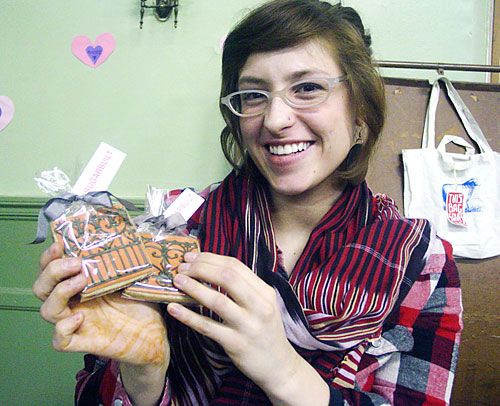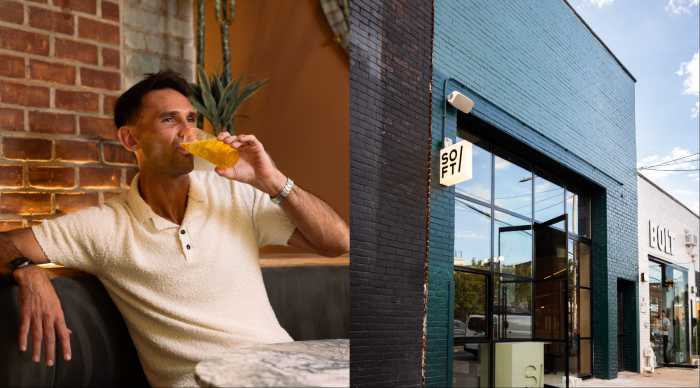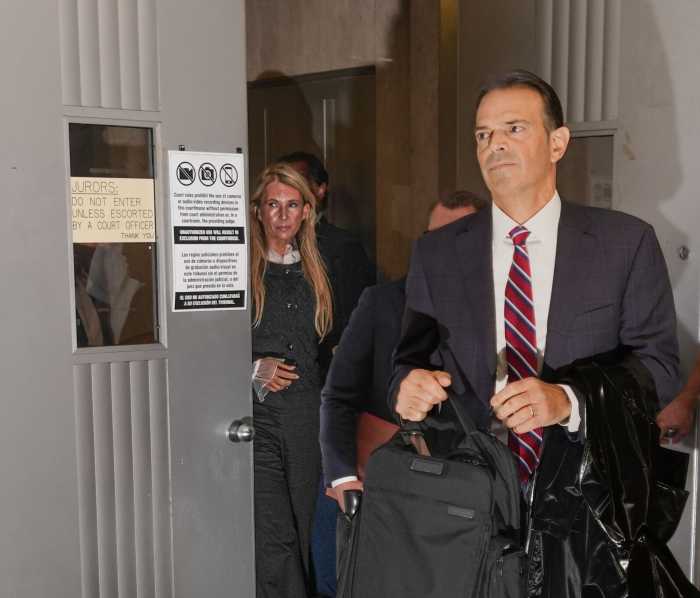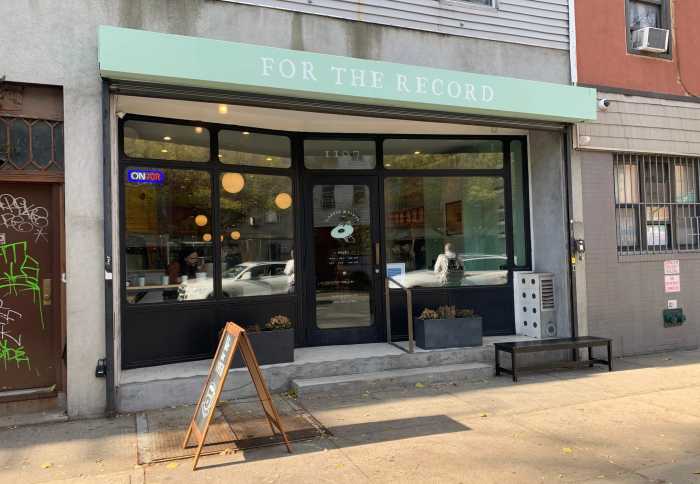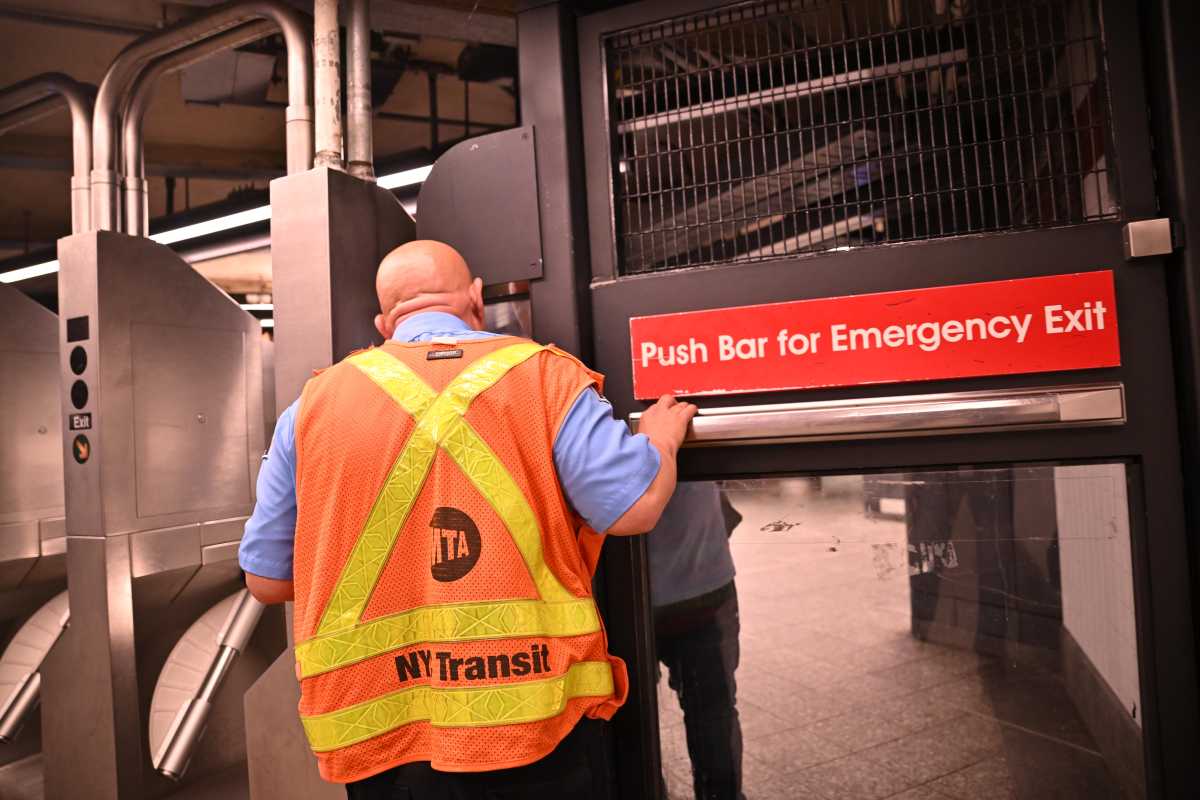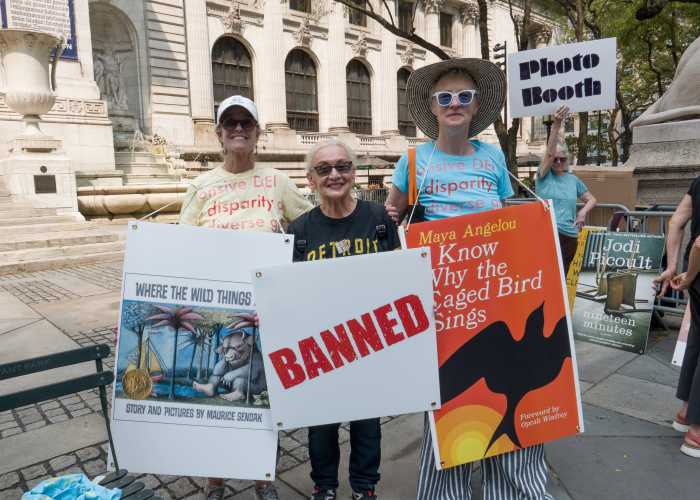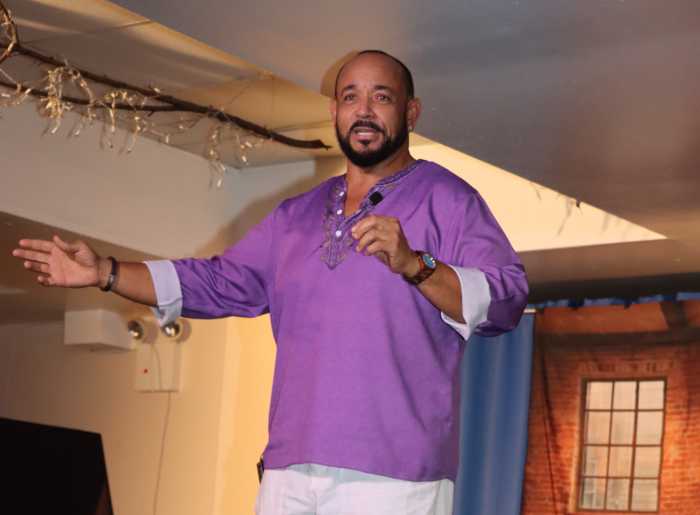The organizer of the Greenpoint Food Market has decided to fold her 10-month-old indie eats bazaar in the face of a threat from city health officials to slap summonses on her vendors because they lack commercial food handling permits.
Food market organizer Joann Kim announced last night that she had canceled the next event scheduled for June 26 rather than risk a city crackdown.
If there are to be future markets, Kim said, all vendors will need to obtain food-handling certificates and temporary food establishment permits — and, most onerously, produce their vittles in a commercial kitchen, an apparent requirement under city Health Department codes.
The message comes less than a week after Kim contacted health officials and Councilman Steve Levin (D–Williamsburg) to determine the best course of action to take with her fledgling indoor market to avoid fines and bring the market up to code as quickly as possible.
As we reported last week, Health Department officials advised Kim to apply for permits for her market and force her vendors to take food-handling courses and use commercial kitchens in order to participate in future markets without incurring citations or fines.
“Food vendors need to be properly sanctioned and [have] the proper permits,” said agency spokeswoman Celina De Leon.
Fans of the market, such as Elaine Matthias, are furious about the city’s meddling. She hopes the market finds a way to stay open for good.
“The grassroots activity is a reaction to the presence of big food corporations in health policy so it doesn’t surprise me that the government is putting up a lot of red tape to prevent people from creating foods in their kitchens and bringing it to a public market,” said Matthias.
A May 22 market featured more than 50 vendors ranging from Jerky’s chewy and salty dried Korean barbecue-flavored treats, assorted flavored kombucha tea from Mombucha, pickled pears from Anarchy in a Jar, and customized chocolate bars from Chocri. Ornately decorated frosted cookies by Sugarbuilt were sold at previous markets.
Health inspectors have not officially visited the market and organizers were not aware of any complaints made about food-borne illness. But Kim believed that inspectors would visit the June market after the gathering received increased attention from the neighborhood media, including the New York Times, a Manhattan publication.
Kim remained committed to keeping the market running, saying that postponing the June event would allow her vendors to apply for their permits and get certified to sell in the future.
“The market will continue functioning but all vendors will have to work in a commercial kitchen if they want to produce food [for sale at the market],” said Kim.
The market’s closure is the latest casualty in the city’s battle against bake sales and food markets. In October, the city banned home-baked goods at public school fundraisers. That policy change came two years after a protracted fight against vendors at the Red Hook ball fields, whose huaraches earned the ire of inspectors even though there had also not been any reports of food-borne illnesses.
Many vendors dropped out, citing the high costs resulting from increased regulations.
Greenpoint Food Market vendors are similarly spooked that the city’s scrutiny could result in higher operating costs. Noah Berland, a fledgling chocolatier, has not made his truffles for four months because of the city’s demands and high costs to use a commercial kitchen, which can rent from $250 to $300 for as little as five hours. He sees the market as a way for small food businesses to gauge interest in new products, which fosters experimentation.
“You don’t have to invest in too much before applying for all permits,” said Berland. “It would be nice if there were some means for people who are not professionals to get an understanding.”
Instead of the market, Kim announced that she would hold a summit on the neighborhood’s grassroots food industry featuring panelists such as Levin, Brooklyn Kitchen’s Harry Rosenblum, and city officials in hopes of designing legislation to make the marketplace more accessible to vendors.
Greenpoint Food Panel at the Church of the Messiah (Russell Street between Nassau and Driggs avenues), June 26, noon.


